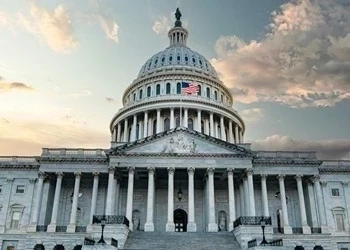The chief data officer: What’s next in 2025?
Learn how today's chief data officers are becoming crucial architects of business strategy and AI-driven growth
Add bookmark
Over the last 15 years, the role of chief data officer (CDO) has risen from relative obscurity to become one of the most strategically important posts within the modern executive team.
Once viewed as technical overseers of data compliance and quality, CDOs are now hugely significant figures within organizations, strategically shaping their future.
As digital technology continues to evolve at a rapid pace, the significance, scope and expectations of the CDO are moving with it. Key requirements of the role now include the ability to drive innovation, navigate security challenges and harness the transformative power of artificial intelligence (AI).
Become a member of the AI, Data & Analytics Network for free and gain exclusive access to premium content including news, reports, videos, and webinars from industry experts. Connect with a global community of senior AI and data leaders through networking opportunities and receive invitations to free online events and weekly newsletters. Join today to enhance your knowledge and expand your professional network.
Join NowWhat is a chief data officer?
Essentially, the CDO holds responsibility for maximizing the value of an organization's data assets. This involves overseeing data governance, quality, privacy and compliance.
Historically, the CDO's role was ‘defensive’, focused on minimizing risk, ensuring regulatory compliance and safeguarding data assets. However, this remit has expanded rapidly as organizations recognize that data, when properly managed and leveraged, can drive innovation, competitive advantage and business growth.
As data becomes the backbone of AI, automation and advanced analytics, the CDO is increasingly a strategic enabler. CDOs are now responsible for developing, implementing and governing enterprise-wide data strategies that underpin digital transformation efforts, foster innovation and strengthen the organization’s security profile.
The major shift could be described as a move from data stewardship to business leadership. CDOs are tasked with aligning data initiatives to business outcomes – whether that means driving revenue, improving customer experience, or opening new markets.
Deloitte's 2024 CDO survey found that 72 percent of CDOs now report into the C-Suite, emphasizing the strategic weight their role carries.
The CDO in the age of AI
Arguably, no force has the potential to accelerate the evolution of the CDO role more than artificial intelligence. As organizations rush to capitalize on the power of generative AI, the demand for robust, high-quality and ethically managed data has never been greater. In this context, the CDO plays a dual role: enabling access to data for AI-driven innovation and decision-making, while also safeguarding its reliability and integrity.
A recent survey reported in Startups magazine found that 93 percent of CDOs believe that an effective data strategy is essential for extracting value from generative AI, with the role increasingly covering strategic AI implementation. This shift is echoed by MIT Management, which reports that CDOs now focus on enablement-oriented governance – removing barriers so teams can easily access and use AI-ready data.
Meanwhile, the boundaries between the CDO and emerging roles such as the chief AI officer (CAIO) are already blurring.
Technology Magazine reports that 48 percent of FTSE 100 companies now have a dedicated CAIO or similar role, with 65 percent of these positions appointed in the last two years. This highlights the growing importance of board-level AI leadership and the strategic intersection between data management and AI governance.
The CDO’s security brief
The CDO's role in security has also been amplified in the AI era. As Forbes notes, CDOs are increasingly called upon to collaborate with chief information security officers (CISOs) to ensure robust protocols are in place to protect sensitive information while still enabling valuable insights.
This can involve implementing comprehensive data labeling systems, overseeing data lineage to track information flow across systems and even leveraging AI to create digital shields that protect against malicious content and potential attacks.
Today’s CDO is also expected to set the tone for security right across the organization, working with CISOs to deliver holistic security training that extends beyond traditional IT boundaries, rolling out clear policies and making sure everyone understands the importance of data integrity and confidentiality.
In a world, where a single breach can cause huge disruption and damage trust, CDOs have become key players in making organizations more resilient and better prepared.
CDO challenges and tenure concerns
Despite their strategic importance, CDOs face significant challenges. MIT Sloan Management Review notes that more than half (53.7 percent) of CDOs serve less than three years and nearly a quarter (24.1 percent) last for less than two years.
Whether these CDOs are being pushed out for strategic reasons, made redundant due to cost pressures, or seeing their mandates and budgets shrink, the pattern is clear – data leadership roles are experiencing high turnover rates.
According to CIO, nearly a third of current CDOs (29 percent) question the long-term future of the position, speculating that unless CDOs keep evolving – moving beyond compliance to demonstrate tangible business value – their responsibilities risk being absorbed into broader IT or digital transformation portfolios.
Global demand and increasing strategic importance
Despite these concerns, global demand for CDOs has surged as both private and public sectors recognize the need for robust data leadership. The financial sector, with its stringent regulatory environment and heavy investment in AI and analytics, has seen some of the most advanced CDO roles emerge. Meanwhile, public sector CDOs are proving essential in delivering on digital government initiatives, improving public services and ensuring the responsible use of personal data.
The shift from traditional data custodianship to strategic leadership is particularly evident across major markets, where CDOs are now expected to lead cross-functional teams, drive data literacy and champion ethical AI deployment across their organizations.
The future of the CDO
There is, in fact, a strong argument to suggest the CDO role is set to become even more important. MIT Sloan Management Review believes the next wave of CDOs will be those who can marry technical data expertise with business acumen and change management skills – often acting as the chief "data evangelist" within their organizations.
The future CDO, therefore, will need to be agile, visionary and able to deliver data-driven change at every level of the organization.
So, from relatively humble beginnings as data custodians, chief data officers are now essential to the future of their organizations, especially as data and AI have become core to competitive advantage.
The CDO's ability to bridge technical and business priorities, foster innovation and ensure ethical, secure data use will only grow in importance as organizations continue to evolve.
























